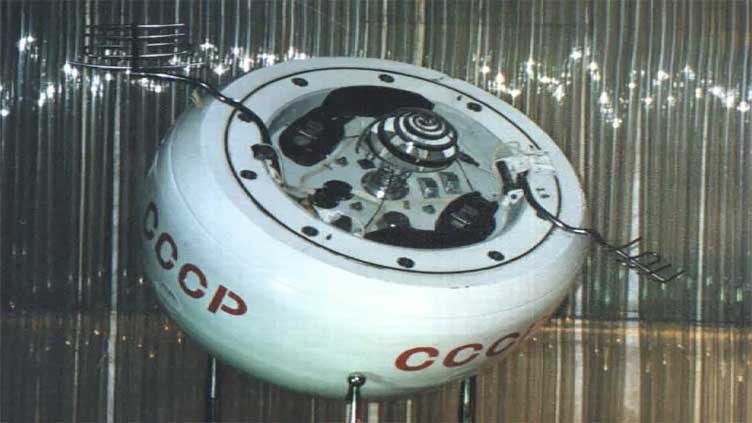Soviet spacecraft crashes without incident into Indian Ocean

Technology
The 50-year-old lander probe returned to Earth early Saturday
(Web Desk) - Cosmos 482, the exploratory spacecraft launched toward Venus by the Soviet Union in March 1972, has finally ended its mission.
The 50-year-old lander probe returned to Earth early Saturday, May 10, entering the atmosphere at about 2:24 a.m. ET (9:24 a.m. Moscow time) over the Indian Ocean west of Jakarta, Indonesia, and falling into the Indian Ocean, the Russian space agency Roscosmos said.
The European Space Agency is monitoring Cosmos 482's uncontrolled descent. The spacecraft was last spotted on radar over Germany between 12:30 a.m. ET and 2:04 a.m. ET.
"We have not received so far any reports on visual direct observations of the final re-entry, or on any impacts on ground," the ESA said.
The EU Space Surveillance and Tracking agency said, "Object Cosmos-482 Descent Craft decayed within the last estimated re-entry window."
Scientists had not been concerned about Cosmos 482's return to Earth causing a danger risk to humans because of the craft's small size – about 3 feet in diameter and around 1,190 pounds, Space.com reported.
The space news site reported that Virtual Telescope Project astronomer Gianluca Masi posted an image of the spacecraft as it passed over Rome early May 10. The probe was "visible as a trail entering the field of view from the top and pointing to the bottom right corner," Masi wrote on his website.
WHAT HAPPENED TO COSMOS 482?
Cosmos 482, also known as Kosmos 482, was one of a pair of identical Venus atmospheric lander probes launched by the Soviet Union in 1972. The other spacecraft, Venera 8, arrived at Venus and made scientific measurements of the planet's soil before ceasing operation.
According to NASA, Cosmos 482 suffered an apparent launch malfunction and failed to achieve the velocity needed to reach Venus' atmosphere. Cosmos 482 separated into four pieces, two of which remained in Earth's low orbit and decayed within 48 hours, and the other two pieces went into a higher orbit.


